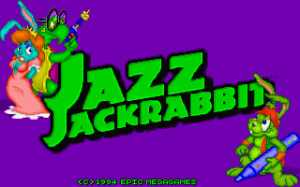But I enjoyed it so much that when this opportunity arose in 2000 to set up Guerrilla Games–by merging a number of small studios into an organization that had a chance to really compete–that kind of was perfect for me. Because it brought back my business skills, my love for technology, and my past with games.
I am hearing some divergent things in your story at least in compared to what is more typical with people who work in the video game industry. I’m hearing that you came to the games business as an adult and decided to make a career as an adult. It’s in direct opposition to somebody who has these deeply ingrained childhood experiences, pushing them into becoming a game designer. And that’s really interesting, because I imagine you must have been a lot more clear-eyed about what your chances were when you finally decided to form the conglomerate that became Guerrilla Games. So who were the development studios that you brought together for the collective?
There were three. The first one I should mention was Orange Games, and that was a studio owned by someone named Arjan Brussee, and he’s currently our development director. So a lot of the old crew is still here.Orange Games worked in the mid ‘90s on a title called Jazz Jackrabbit. It was pretty popular at the time. Arjan worked on that with Cliff Blezsinski. So there’s some connection with other industry figures.
Then there was another studio called Formula, which later became Lost Boys. The main guy there was Mathijs de Jonge, he’s currently game director on Killzone 3. So that’s another one of the guys that’s basically been with us for 10 years. A lot of hand-held stuff in the beginning. Lots of Game Boy titles and much smaller games. And the final one was, it’s not a name you would have heard of, it was a company called Digital Infinity. They were working on title called Knights . It was a platform game.
Oh, Nights, the Dreamcast game?
Actually no, it was a totally different title and we had to can that in the early days. But you were talking about entering the industry as an adult. The point you make about a different decision-making process is probably right. Because when I started with Guerrilla Games, back in late 2000 or early 2001, part of my role was to not only take a creative view on things, but also, make sure it was going to evolve into a proper business. And back then we were, I think, developing three, four different games in different genres on different technologies at the time. Streamlining that, making sure that we actually had a chance to compete in something serious. That definitely comes with being an adult, right?
Right. Right. You can’t afford to fly by the seat of your pants.
You can’t be 30 people and compete on handheld, on PC, and on all the game consoles that were out there and in different genres. If you compare to what we’ve been doing recently– a very large team, in one particular genre, working on one franchise–it’s almost the opposite turn that we took there.


